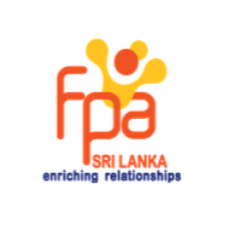Emotional abuse: The various types

If being with your friends, family or partner makes you feel scared, confused or doubtful of yourself, you may be experiencing emotional abuse. In such relationships you may feel that there is no way out or that you are nothing without them. Though psychological abuse doesn’t leave bruises and broken bones, it can cause severe emotional issues and mental health conditions and lead to physical violence. Emotional abuse is never acceptable and you have the right to feel safe, respected and supported in your relationships.
What is emotional abuse?
Psychological, emotional or mental abuse, is verbal or non-verbal communication to try to control someone or harm them emotionally. It’s a pattern of behaviour where the abuser purposefully controls, isolates, and/or punishes, using fear and humiliation on the victim. While it can be accompanied by other forms of abuse, it’s a serious concern on its own. Emotional abuse is common and most people will experience it in some form in their lifetime.
Types of emotional abuse
Emotional abuse can take different forms, which can include:
- Causing fear through intimidation, coercion, bullying, manipulation, control and threats;
- Verbally abusing though shouting, insulting or swearing;
- Putting you down through ridicule, humiliation, name calling and blaming;
- Causing social abuse through harming your relationships with others, sharing images of you without your permission and monitoring your activities;
- Isolating you through silence, withholding affection, limiting your freedom and not letting you do things you love/ do on a day to day basis;
- Keeping you away from your loved ones or threatening to harm them or himself/ herself;
- Constantly rejecting you and your ideas, invalidating, gaslighting, infantilization or guilt-tripping;
- Expecting you to be in constant contact and wanting to know where and with who you;
- Wanting the passwords to your phone, social media accounts;
- Accusing you of cheating and being jealous;
- Making decisions on your behalf about your clothes or daily activities.
- Financial abuse though controlling or withholding your money, preventing you from working or studying, stealing from you and monitoring your expenditure.
Signs of emotional abuse
Emotional abuse may not be as easily recognized as physical or sexual abuse. Thus, it is important to know the types of abuse and the signs, to identify if you or a loved one is being abused. Signs of emotional abuse include being visibly upset or agitated, being withdrawn, avoiding certain people or being afraid or quiet around them, cancelling plans with friends and family in the last minute, making excuses for the partner’s harmful behaviour, refusing to speak about their relationship even when you express concern, being overly apologetic even about things that are not their fault, indecisive and insecure, constant check ins by their abuser, and the abuser puts them down in public.<
Consequences of emotional abuse
A person suffering from emotional abuse will feel unwanted, undeserving of love and respect, overwhelmed, stressed, hopeless, powerless, ashamed, used and guilty. They will have difficulty in focusing, sleeping, enjoying life and live in constant fear of the abuser. Furthermore, they could develop anxiety, depression, self-esteem issues and PTSD. They will be co-dependent on the abuser and there will be a breakdown of relationship with friends and family.
Physical violence is often seen as being more serious than emotional abuse, but this simply isn’t true. The scars of emotional abuse are real and long-lasting. Therefore it is important to recognize the abuse, create an exit plan and leave the abusive relationship. Furthermore, you can seek help from a professional, join support groups and talk to your friends and family. You must also establish boundaries and work on healthy and happy relationships. Remember that you are not to blame and make yourself a priority. While realizing that your emotions are valid, practice self-care. For further assistance please call the Alokaya Counselling Unit at The Family Planning Association on 077 989 5252.
.png)



